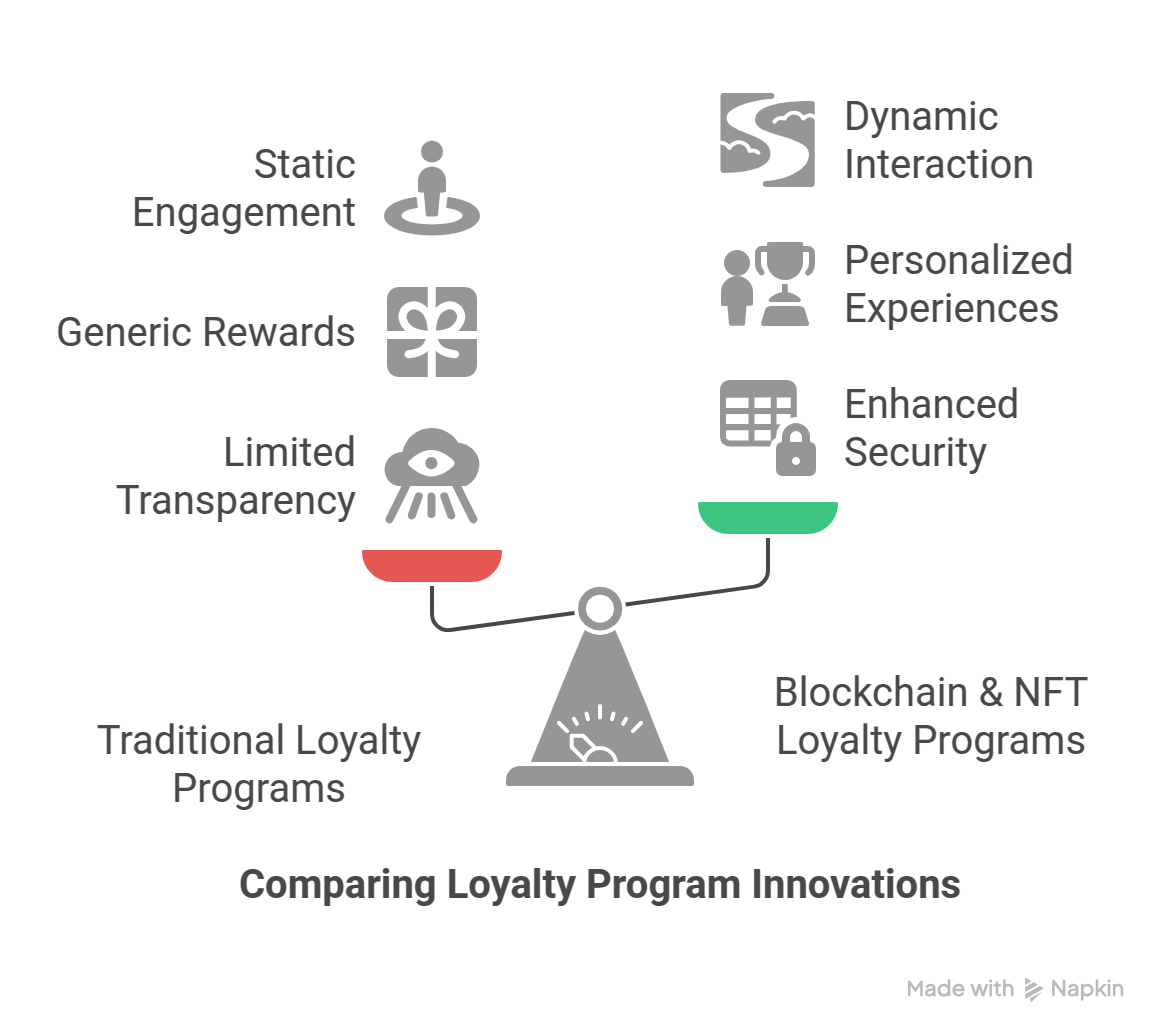Connection Corner
Your go-to guide for relationships, dating tips, and hookup advice.
Blockchain Loyalty Programs That Time Forgot
Discover forgotten blockchain loyalty programs and how they could revolutionize customer engagement. Uncover hidden gems today!
Exploring Forgotten Blockchain Loyalty Programs: What Went Wrong?
The concept of blockchain loyalty programs promised innovative solutions aimed at enhancing customer engagement and retention. By leveraging decentralization, transparency, and enhanced security, these programs gained initial attention as they offered unique rewards that could be traded or redeemed across various platforms. However, many of these initiatives languished or failed altogether. One major issue was the complexity associated with wallets and cryptocurrencies, which deterred mainstream users unfamiliar with blockchain technology. As a result, the user experience suffered, leading to limited adoption and engagement.
Moreover, many companies overestimated the demand for their blockchain loyalty programs, launching initiatives without adequate market research. As a consequence, platforms often struggled with liquidity issues and failed to create a viable ecosystem for rewards. The lack of interoperability between different blockchain systems further exacerbated the situation, discouraging users from participating. In hindsight, it appears that while the vision was ambitious, the execution had significant flaws that prevented these programs from reaching their potential.

Counter-Strike is a popular tactical first-person shooter game that emphasizes team-based gameplay and strategy. Players can choose to join either the terrorist or counter-terrorist team, each with specific objectives to complete. To enhance your gaming experience, you can utilize resources such as a shuffle promo code to access special deals and bonuses.
How Blockchain Could Revolutionize Loyalty Programs: Lessons from the Past
Historically, loyalty programs have relied on traditional methods, such as punch cards and point systems, that often lead to customer frustration due to complexities and limited redemption options. Blockchain technology, with its inherent transparency and security, presents an innovative solution that could address these pain points. By leveraging decentralized ledgers, businesses can create more flexible and accessible loyalty programs that allow customers to earn, store, and redeem points across different platforms seamlessly. For example, a user could accumulate points from a coffee shop and use them for discounts at a partnered retailer, fostering a more integrated customer experience.
Lessons from past loyalty programs highlight the need for improvement. Many have struggled with issues such as data breaches and customer disengagement. With blockchain, the potential exists to build trust and loyalty as customers will have control over their data and rewards. Moreover, the program's performance can be enhanced through real-time analytics, providing businesses with valuable insights into consumer behavior. As companies explore these possibilities, it's clear that adopting blockchain technology could not only modernize loyalty programs but also set new standards for customer engagement in the digital age.
Are There Any Successful Blockchain Loyalty Programs Left?
As the digital landscape evolves, the question of whether successful blockchain loyalty programs still exist becomes increasingly relevant. While many early implementations struggled to gain traction, several companies have successfully integrated blockchain technology into their loyalty strategies. For instance, brands such as LoyaltyX and BitRewards have demonstrated that by utilizing smart contracts, they can create transparent and efficient systems that improve customer engagement. These programs not only allow for the seamless accumulation and redemption of points but also enhance security and reduce fraud, making them appealing to both businesses and consumers.
Moreover, the rise of decentralized finance (DeFi) has opened up new avenues for blockchain loyalty programs. Companies are now exploring innovative models that combine traditional loyalty elements with DeFi mechanisms, providing users with additional rewards through staking or yield farming. For example, brands like Brave have harnessed the power of blockchain to incentivize users with tokens, fostering an ecosystem where customer loyalty is rewarded in more versatile and profitable ways. As these trends develop, it becomes clear that while challenges remain, there is potential for a resurgence of loyalty programs powered by blockchain technology.